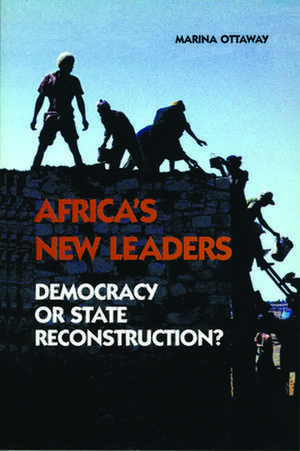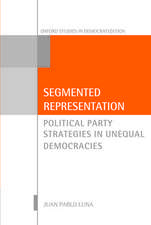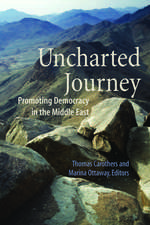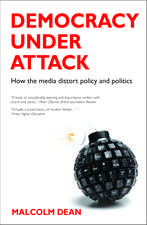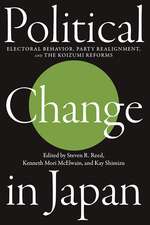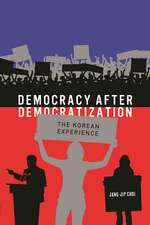Africa's New Leaders: Democracy or State Reconstruction?
Autor Marina Ottawayen Limba Engleză Paperback – feb 1999
This book's starting assumption is that democracy is always desirable, but may not always be possible in the short and medium run. The road to democracy thus may not initially be democratic. In this perspective, the author examines the experience of a small number of African countries which--under the guidance of energetic new leaders--have turned the corner away from conflict and economic disintegration and are now pursuing economic and political reform and assertive foreign policies that have made them into important regional players. Uganda, Ethiopia, and Eritrea--countries long synonymous with war and economic chaos--are now among the most dynamic on the continent. Their success is making them into a model attractive to other African governments, particularly in other countries emerging from conflict. Yet these countries' new leaders refuse to carry out the democratic reforms favored by the U.S., arguing that such measures would cause more conflict. Instead, they will move toward political reform in their own way and at their own pace. Can this process eventually lead to democracy or is it bound to restart a vicious circle of authoritarianism and economic decay? And can the U.S. influence the change, while accepting that the process is bound to be long and complex? These questions will confront the U.S. with increasing frequency in coming years. As the countries where democratic transformation was easiest move forward toward consolidation, policy makers will be forced to deal with those countries where democratic change is more complex.
Preț: 62.25 lei
Nou
Puncte Express: 93
Preț estimativ în valută:
11.91€ • 12.39$ • 9.83£
11.91€ • 12.39$ • 9.83£
Carte disponibilă
Livrare economică 24 martie-07 aprilie
Preluare comenzi: 021 569.72.76
Specificații
ISBN-13: 9780870031342
ISBN-10: 0870031341
Pagini: 138
Dimensiuni: 152 x 229 x 10 mm
Greutate: 0.23 kg
Ediția:New.
Editura: Brookings Institution Press
Colecția Carnegie Endowment for Int'l Peace
Locul publicării:United States
ISBN-10: 0870031341
Pagini: 138
Dimensiuni: 152 x 229 x 10 mm
Greutate: 0.23 kg
Ediția:New.
Editura: Brookings Institution Press
Colecția Carnegie Endowment for Int'l Peace
Locul publicării:United States
Notă biografică
Marina Ottaway is a senior associate in the Democracy and Rule of Law program and director of the Carnegie Middle East program at the Carnegie Endowment for International Peace. She is the author of several books, including Democracy Challenged: The Rise of Semiauthoritarianism (Carnegie Endowment, 2003).
Descriere
This book's starting assumption is that democracy is always desirable, but may not always be possible in the short and medium run. The road to democracy thus may not initially be democratic. In this perspective, the author examines the experience of a small number of African countries which--under the guidance of energetic new leaders--have turned the corner away from conflict and economic disintegration and are now pursuing economic and political reform and assertive foreign policies that have made them into important regional players. Uganda, Ethiopia, and Eritrea--countries long synonymous with war and economic chaos--are now among the most dynamic on the continent. Their success is making them into a model attractive to other African governments, particularly in other countries emerging from conflict. Yet these countries' new leaders refuse to carry out the democratic reforms favored by the U.S., arguing that such measures would cause more conflict. Instead, they will move toward political reform in their own way and at their own pace. Can this process eventually lead to democracy or is it bound to restart a vicious circle of authoritarianism and economic decay? And can the U.S. influence the change, while accepting that the process is bound to be long and complex? These questions will confront the U.S. with increasing frequency in coming years. As the countries where democratic transformation was easiest move forward toward consolidation, policy makers will be forced to deal with those countries where democratic change is more complex.
